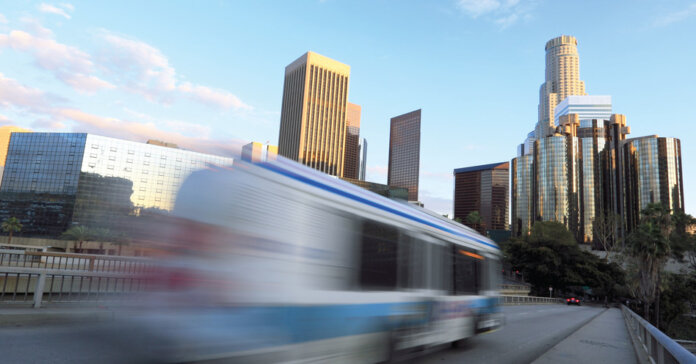With transit agencies under pressure to electrify their fleets, AMPLY Power and AECOM, a global infrastructure consulting firm, have entered a strategic partnership to help bus fleet owners address and accelerate their zero-emission initiatives.
By combining AMPLY’s operational expertise and unique charging-as-a-service technology with AECOM’s specialization in large-scale transportation and utility projects, the partnership provides transit agencies with a turnkey approach to optimize their infrastructure and operations for electrification.
“This partnership is an important step in the transition toward 100% electric mobility,” says Andrew Bui, vice president of national transportation innovation at AECOM. “Although 100% zero-emission transit bus goals are still years away, it’s critical to address now so that infrastructure and facilities can scale to support efficient electric operations. To facilitate moving fleets from pilot stage to full adoption, we believe this partnership offers what a fleet operator requires, from design and financing to fleet charging infrastructure implementation and management.”
AECOM specializes in supporting electric fleet conversions by creating efficient staging, optimizing infrastructure requirements, integrating new infrastructures like solar canopies, designing and coordinating utility infrastructure, and siting new facility locations. AMPLY brings their economical charging-as-a-service model to the table, which provides charging hardware deployment, management of depot upgrades and utility interconnections, real-time software-controlled charge optimization, debt financing of capital expenditures and resiliency planning.
AMPLY Power recently broke ground on a project with the Anaheim Transportation Network (ATN), where they estimated a potential $4.8 million in fuel savings over the next 20 years for their 46 electric bus fleet. AECOM is currently working with Washington Metro Area Transit Authority (WMATA), initially on year-long planning efforts, and now leading facility design to accommodate WMATA’s 12 electric-bus pilot project – an important first step for WMATA as they aim to convert their entire fleet of over 1,500 buses to zero-emissions.





